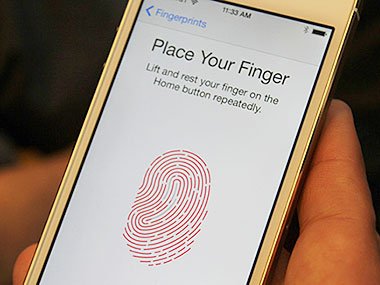Apple’s announcement of a fingerprint sensor on the forthcoming iPhone 5S looks like another step towards the wider payments market for the US giant, although for now the Touch ID technology will only allow users to unlock their handset and authenticate purchases on iTunes or the App Store.
The company has previously announced a few other pieces of the payments puzzle which, however, still leave it short of a full mobile payments service.
Apple has Passbook, its wallet for passes and loyalty cards, and of course iTunes holds the credit card details for millions of users. And the company offers its EasyPay wireless payment technology for smaller transactions in its own stores.
Nothing yet pulls these services together, or translates them onto the physical, non-Apple world.
However, Apple’s announcement made no mention of NFC. There had been little speculation about technology’s inclusion in the latest iPhones in recent months.
The iPhone 5S will feature a fingerprint sensor in the device’s home button. Security is likely to be a debate following Apple’s adoption of fingerprint technology. The company stressed that all fingerprint information is encrypted and stored securely inside the A7 chip on the iPhone 5. “It’s never stored on Apple servers or backed up to iCloud,” stated Phil Schiller, Apple’s marketing chief.
Touch ID can be used as a secure way to approve purchases from the iTunes Store, App Store or iBooks Store, as well as unlock the handset – its only two uses at present.
Schiller confirmed to AllThingsD that developers won’t be given access to using the fingerprint function. He would not comment on whether that position might change in the future.
Apple acquired fingerprint-reading technology with its $356 million acquisition last year of security firm AuthenTec.
Dave Birch, a director of research firm Consult Hyperion, picked up on the security theme in a note following yesterday’s announcement: “Will Touch ID be more secure than a 4-digit passcode that can easily be read over someone’s shoulder? Yes.”
But will the fingerprint tech replace 4-digit passcodes? “No”, wrote Birch.
He went on: “Will Touch ID make iPhones magically invulnerable and capable of storing your deepest thoughts perpetually and in complete secrecy? No. Biometrics in the mass market are about convenience, not security.”










Comments